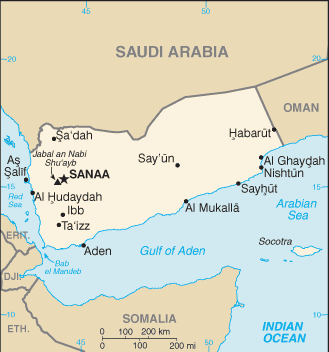Yemen’s Shi’ite Houthi rebels, which dominate much of the northwest of the country, including the capital city of Sanaa, has been expanding its control south along the Red Sea coast. They’re moving inland now.
 Houthi fighters pushed into the key al-Qaeda stronghold of Manasih, in the Bayda Province today, chasing off both the fighters of al-Qaeda in the Arabian Peninsula (AQAP) and Sunni tribal factions which fought alongside them.
Houthi fighters pushed into the key al-Qaeda stronghold of Manasih, in the Bayda Province today, chasing off both the fighters of al-Qaeda in the Arabian Peninsula (AQAP) and Sunni tribal factions which fought alongside them.
The Houthis aren’t fighting alone either, as the Yemeni army has reportedly been launching airstrikes and artillery attacks against the tribal factions in the region, hoping to use the Shi’ite advance as a way to weaken AQAP.
That may well work, but it’s risky strategy, as the Houthis themselves are holding many of the seats of power of the Yemeni government, and have an eye toward making themselves a significant part of any future government.


